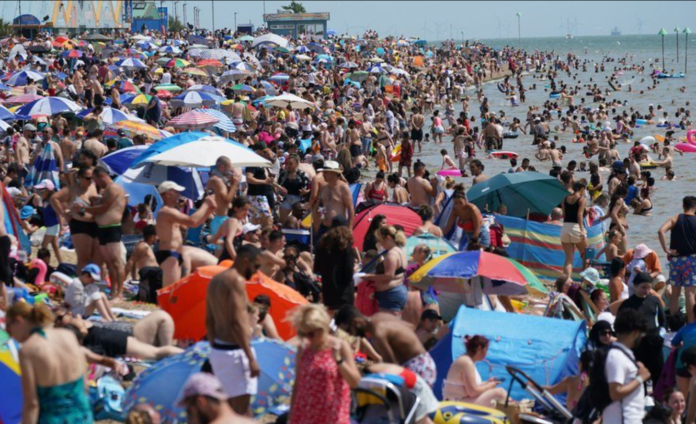The UK has recorded temperatures of over 40C (104F) for the first time.
Thermometers hit 40.3C at Coningsby in Lincolnshire, at 16:00 BST, well above the previous high of 38.7C in 2019.
London Fire Brigade has declared a major incident after a surge in fires, including grassland blazes, across the capital, while there has been power disruption in other parts of England.
Some rail services have been cancelled after tracks overheated or buckled and overhead cables failed.
More than 350 firefighters are tackling fires across London, while all trains have been cancelled between London Euston and Milton Keynes due to a lineside fire – caused when overhead electric cables came down in Harrow.
Rail operator c2c said the line between Ockendon and Upminster would be closed due to a fire near the line in east London, while the A40 is closed in both directions due to a fire at Northolt in west London.
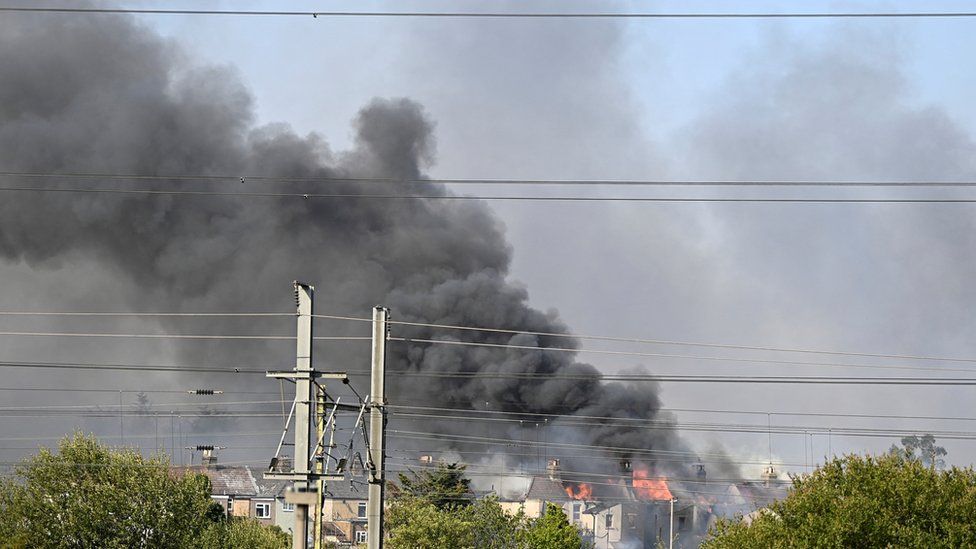
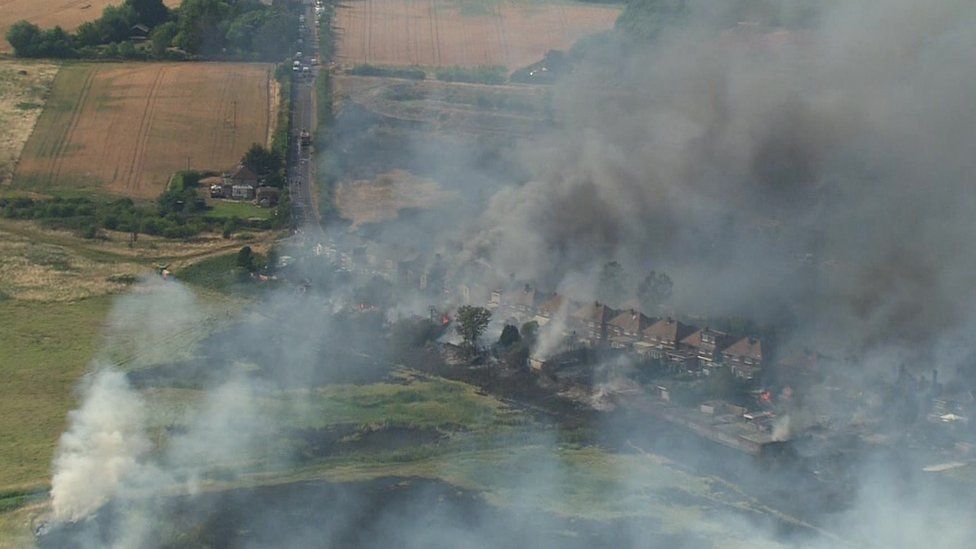
A large fire has been burning at Wennington, in east London, where buildings and fields are on fire.
People have been evacuated form the area but there are concerns about livestock.
There are also fires elsewhere around the country, including in Leicestershire, where a major incident has also been declared, Dartford in Kent and Nottinghamshire.
Heathrow was the first place to break the 40C mark, hitting 40.2C at 12:50 but as of 16:00 several other places had also passed 40C, including St James’s Park, Kew Gardens and Northolt – all in London.
A large swathe of eastern England, from Surrey to South Yorkshire, sits between 39C and 40C, meaning a significant number of weather stations have exceeded the previous UK temperature record.
Scotland has also seen a new record, according to provisional Met Office figures, with 34.8C recorded at Charterhall, in the Scottish borders – beating the previous record of 32.9C recorded in 2003.
In Wales, Hawarden in Flintshire registered 36.2C, provisionally the second highest temperature on record in Wales, but below Monday’s 37.1C.
The Met Office has issued a red extreme heat warning covering much of central, northern, and south-east England.
There are also warnings for people to be careful around water after at least five people died in and around water over the past two days.
The body of a teenage boy who went missing on Monday was recovered from the River Thames in Richmond, west London, on Tuesday afternoon, the Metropolitan Police said.
Network Rail has warned against travel, road surfaces have warped, and in Yorkshire a number of power cuts have been reported.
Met Office chief of science and technology Prof Stephen Belcher said exceeding 40C was “virtually impossible” in an undisrupted climate, but due to climate change “driven by greenhouse gasses” such extreme temperatures had become a reality.
He said if there continued to be high emissions “we could see temperatures like this every three years”.
The extreme warning, indicating a threat to life, is in place in an area stretching between London, Manchester and York.
There was a markedly cooler outlook for Penzance, Cornwall, where thundery storms hit the popular holiday destination.
And across the country, the heatwave is forecast to come to a sudden end with markedly cooler weather expected on Wednesday and thunderstorms forecast for parts of the east and north-east of England.
Provisional figures showed the UK experienced the warmest night on record from Monday into Tuesday.
Emley Moor in West Yorkshire is likely to have broken that record, where 25.9C was recorded overnight, according to the Met Office.
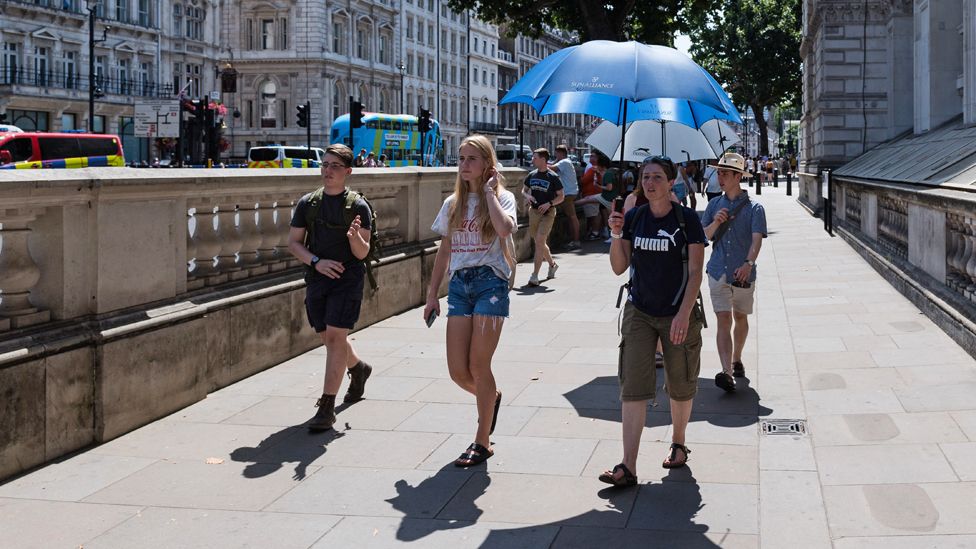
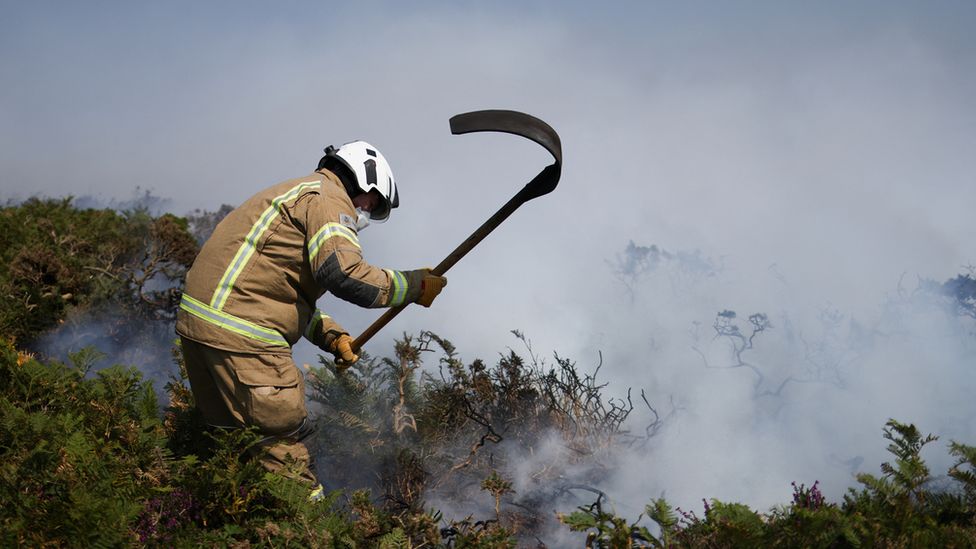
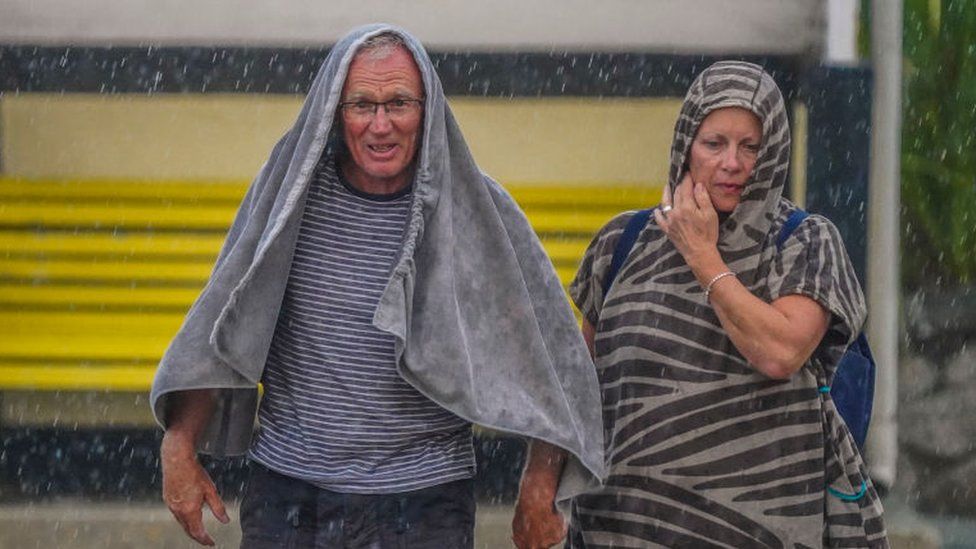

Rail services have been heavily impacted by the extreme heat, Network Rail said, with buckled rails reported and overhead wire systems failing. A record rail temperature of 62C was recorded in Suffolk.
Jake Kelly, the group director for system operation at Network Rail, said it had taken “the difficult and regrettable” decision to close the East Coast Mainline and the Midland Mainline due to record temperatures.
Transport Secretary Grant Shapps said the UK’s rail network could not cope with the extreme heat, adding that it would take “many years” before upgrades would mean services could handle the hotter climate.
Water companies in southern and eastern England have warned increased demand is leading to low pressure – and even interrupted supply – for some households.
Heatwaves are becoming more likely and more extreme because of human-induced climate change.
The world has already warmed by about 1.1C since the industrial era began, and temperatures will keep rising unless governments around the world make steep cuts to emissions.
We are living in the hottest period for 125,000 years, according to the UN’s climate science body, the Intergovernmental Panel on Climate Change.
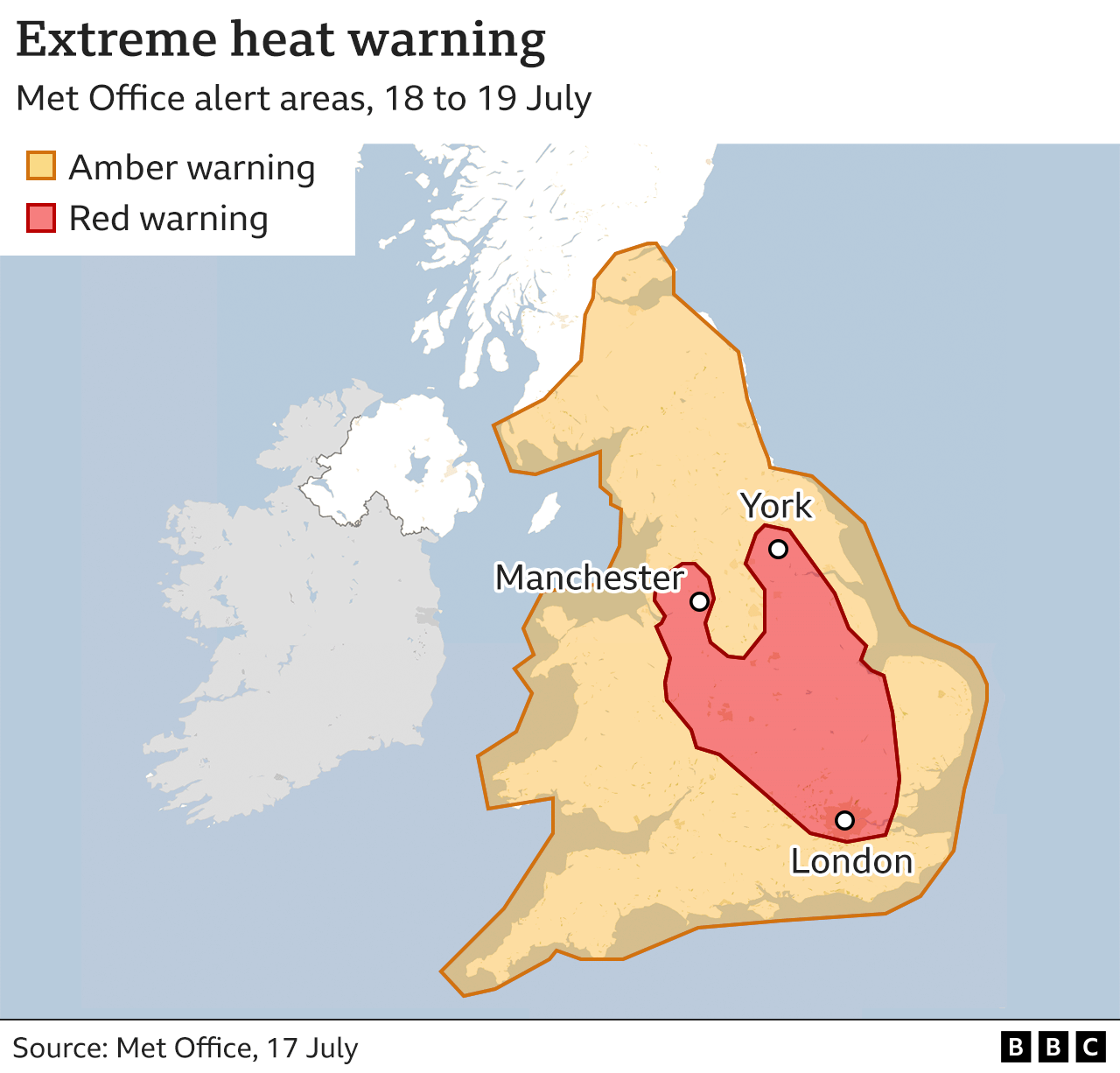
Farmers have warned the UK is not equipped to deal with water shortages caused by the changing climate, with Minette Batters, the president of the National Farmers’ Union, saying the unprecedented temperatures were “really highlighting issues with water security”.
Following several deaths, people are being urged not to cool off in open water. “Whilst it may seem tempting on a hot day, please don’t get in the water,” the Canal & River Trust said.
MORE:

